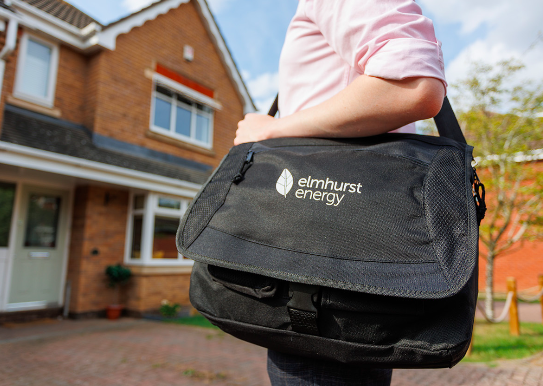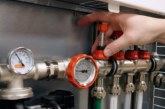
With the Future Homes Standard (FHS) set to soon bring in measures to help eliminate the performance gap in new built housing, a first-of-its-kind course is driving skills in measured energy performance to meet increased demand for testing.
Measured Energy Performance (MEP) competency scheme from Elmhurst Energy, the UK’s leading provider of training and accreditation for energy efficiency professionals, will upskill the sector to support housebuilders in demonstrating as-built homes match the energy performance promised at design.
It will teach building heat loss measurement and holistic building performance evaluation to drive a truer understanding of the real energy efficiency of UK homes and buildings.
Stuart Fairlie, managing director of Elmhurst Energy, said: “We can’t truly benchmark the energy efficiency of our UK housing stock without measured energy performance (MEP). We’ve now reached a tipping point where MEP has become the key to demonstrating as-built performance against design.
“MEP is quickly being realised as an important feature of the UK’s roadmap to net zero carbon-ready buildings. Use of MEP in new build housing will also swiftly increase in 2025 with the Future Homes Standard, which will offer a ‘badge’ for housebuilders that demonstrate homes have no performance gap.”
The course delivers governance and a framework for MEP against future standards and government requirements, and focuses on upskilling professionals to:
- Measure thermal performance and energy performance of homes, teaching a method for measuring heat transfer coefficient (HTC). HTC measures all heat lost from a home through walls, roof, floor, windows, doors and other air movement paths. It produces the rate of heat loss per degree of temperature difference between inside the home versus outside.
- Explore other areas of building energy performance measurement to determine specific areas of heat loss in a home, such as by ventilation and infiltration assessment through airtightness testing, as well as u-value measurement and thermal imaging.
Chris Ricketts, Elmhurst Energy head of consultancy, said: “Around 20% of the UK’s carbon emissions are caused by heating our homes. At the moment, many of our efforts to decarbonise our dwellings are based on calculations which involve some assumptions – and that could be harming our journey to Net Zero 2050. MEP can help to avoid further energy efficiency improvements being required down the line.”
Caroline Postles, technical consultant at Elmhurst Energy and MEP Scheme lead, added: “The launch of both the MEP training and the wider scheme is key to scaling up vital competency in this area, and emphasises our ongoing commitment at Elmhurst to growing understanding about building energy performance. We hope the course will play a part in developing and delivering skills the UK needs to drive further energy efficiency improvements and uptake in low carbon heating solutions.”
Elmhurst has been working to formalise the use of MEP through HTC testing for almost four years. It has supported projects through the government-funded Smart Meter Enabled Thermal Efficiency Ratings (SMETER) innovation programme and advised in the ECO4 (Energy Company Obligation) Scheme working group and Future Homes Hub (FHH) Building Performance Evaluation Scheme.
Elmhurst’s Measured Energy Performance (MEP) Competency Scheme training is delivered online on an on-demand basis, involving three hours of teaching and assessment. To practice measurement, professionals will also need training in relevant HTC technology.








